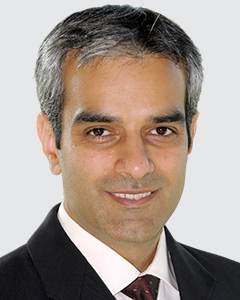Your Top 5 Cholesterol Questions Answered
Cholesterol is found in the fats within your blood. The body needs it to form healthy cells, but too much of it can lead to health issues such as heart disease.
High cholesterol can cause fat deposits to develop in blood vessels and block blood flow to your arteries and other parts of the body. If your heart or brain don’t get enough blood, this potentially could lead to a heart attack or stroke.
About 71 million people in the U.S. have high cholesterol, and many are at risk for developing this condition if they don’t change their diet and lifestyle habits. It’s important to understand what contributes to high cholesterol and what you can do to minimize your risk for developing it.
If you don’t know the difference between HDL and LDL cholesterol or are unsure about what foods to eat or avoid to stay healthy, here are answers to five frequently asked questions about cholesterol.
What are HDL and LDL cholesterol?
HDL and LDL are the two types of cholesterol. HDL, or high-density lipoprotein, is commonly referred to as “good cholesterol” because it prevents clogging in the arteries. The body can take HDL cholesterol to the liver to be removed from the body. However LDL cholesterol, or low-density lipoprotein, can stick to the blood vessels and clog your arteries. This “bad cholesterol” can lead to a heart attack or stroke.
What causes high cholesterol?
Inactivity, unhealthy diet and obesity all contribute to high cholesterol. However, there also are inherited risk factors for high cholesterol. Inherited disorders such as familial hyperlipidemia and hypercholesterolemia can lead to very high blood cholesterol that can be challenging to control. These disorders can cause the liver to produce too much cholesterol and can prevent cells from getting rid of LDL cholesterol from the blood and transferring it to the liver to be excreted. Depending on whether a person’s high cholesterol is due to lifestyle or genetics, we may prescribe medication or dietary or activity changes to control the condition.
How can I raise my HDL level and lower my LDL?
You can raise your HDL cholesterol and lower your LDL cholesterol by eating better and increasing your physical activity. Consuming good fats such as nuts, lean protein and meats can have a significant impact. Some studies have shown that consuming a little more than 2 ounces of nuts every day slightly increased the ratio of good cholesterol to bad cholesterol.
More physical activity also can help, even if it’s as simple as walking. One study found that exercising for 20 minutes a day can increase good cholesterol levels. Strength training, or any other activity that increases your heart rate, also can lower your cholesterol.
How often should I check my cholesterol?
The answer depends on your age and medical history. The American Heart Association recommends that people 20 and older without a history of heart disease check their cholesterol every four to six years as part of their regular heart check-up. If you have a high risk for certain conditions, it’s best to check your cholesterol sooner. Your primary care doctor can conduct your cholesterol test and can best interpret the results, since he or she has access to and a better understanding of your full medical history.
If I have high cholesterol, is medicine really necessary?
Sometimes diet and exercise can only do so much to lower your cholesterol, especially if your cholesterol levels are very high. However, statins—drugs that reduce cholesterol levels by blocking the actions of a cholesterol-making chemical in the liver—can profoundly lower your cholesterol and reduce your risk for a heart attack and stroke. Statins are typically taken once a day and can decrease LDL levels and increase HDL levels at the same time. People who take statins usually notice a significant change in their cholesterol levels within several weeks.
High cholesterol can pose risks for your health, so it’s important to eat properly and remain as physically active as you can. If you are at high risk for certain health conditions, you should talk to your doctor as soon as possible, get a cholesterol test, assess the results and work with your physicians to develop the best approach for lowering your cholesterol.


